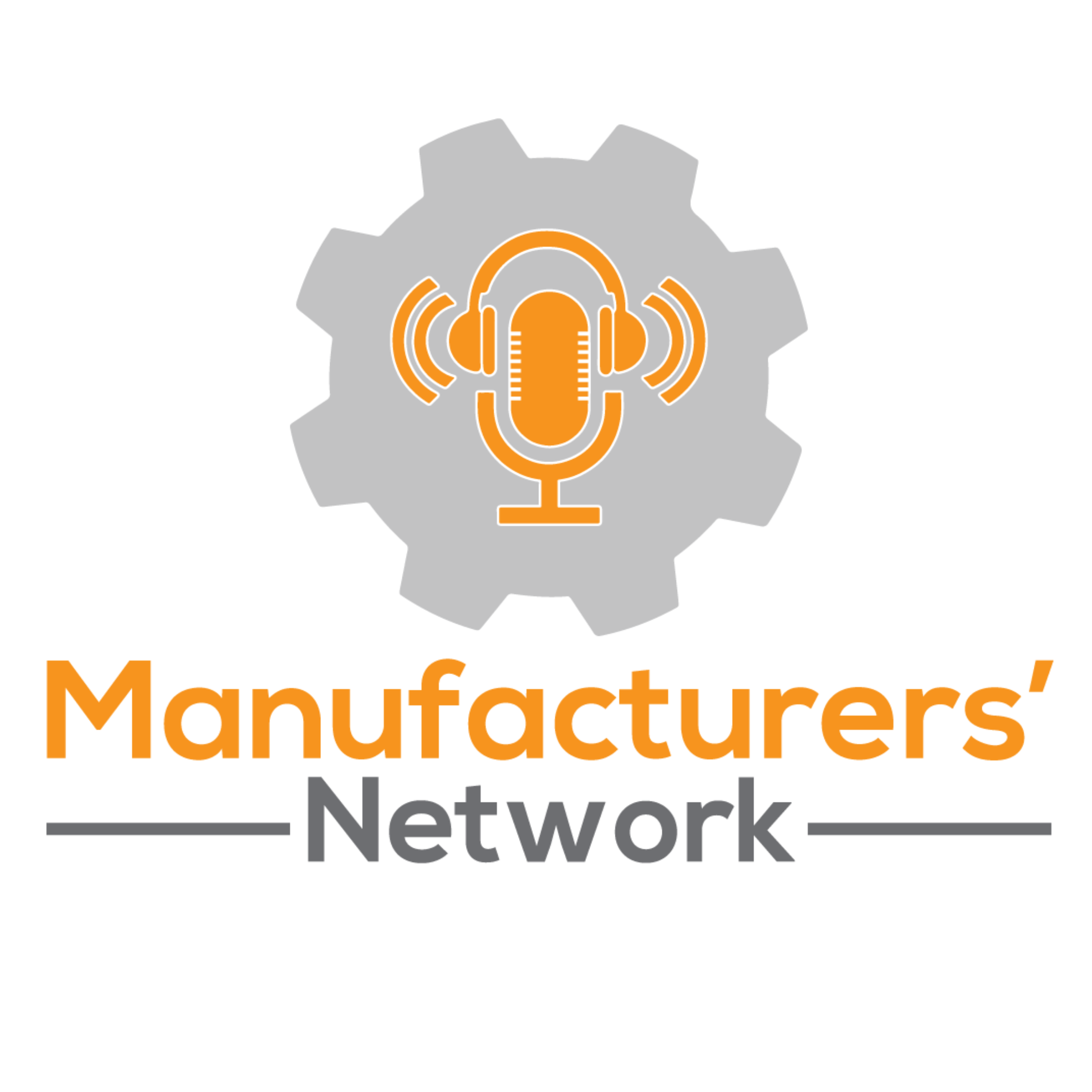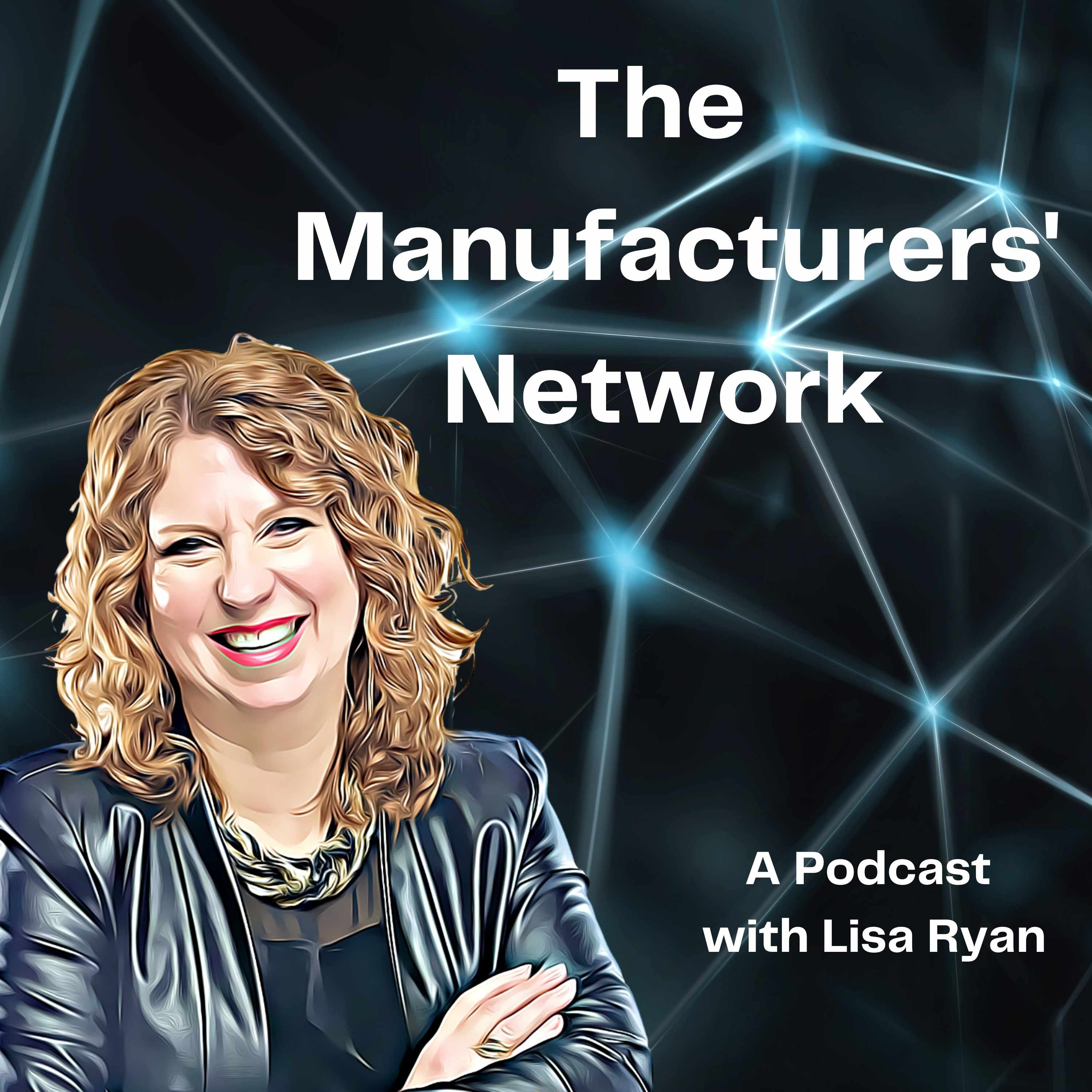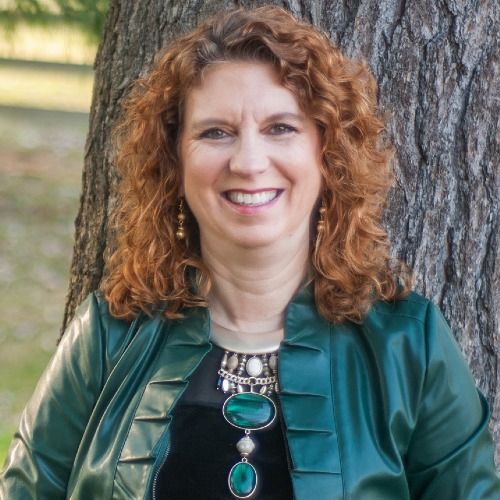Attracting the Next Generations into Manufacturing while Giving Back With Roger Sustar, President of Fredon Corporation
Contact Roger Sustar:
www.thinkmfg.com.
Lisa Ryan: Hey, it's Lisa Ryan. Welcome to the Manufacturers' Network Podcast. I'm excited to introduce our guest today, Roger Sustar. Roger is CEO of Fredon Corporation, which offers complete manufacturing solutions for precision machining needs. They've been in business since 1969 and always go one step beyond to provide their customers with the highest level of quality through planning employee involvement, training technology, and a highly effective quality control system.
Roger is a firm believer in giving back to the community. He started a group called AWT - the Alliance for Working Together - to serve as a forum for manufacturers in Lake county to discuss common business issues. Welcome to the show, Roger.
Roger Sustar: wow, Thank you, Lisa, very much.
Lisa Ryan: Roger, please share a bit of your background and what ultimately led you to Fredon.
Roger Sustar: I came back from the United States Army back in 1964, got married, and before I got married. My dad had me worked for his little company for about two days or three days, and I quit my father's company called Masco Machine. He had a very nice company in Highland Heights, Ohio.
Because it was just too harsh, he had three partners. My wife wanted me to go to school, so I tried to get into Fenn college, which is the pre-Cleveland state. I had failed. I passed the essay test because I wrote the essay, and my wife typed it. That was when papers were around that before the computer, a long time ago. I got an a-minus or something like that. She did an excellent job. I used to pass an English grammar exam, and grammar is, you know, diagramming. Right after the fifth try, I said, screw this. I couldn't take it.
I learned a lot about manufacturing, especially fabrication, because his company was called nonferrous metals fabricating. I learned a whole bunch he bought a plastic company called Cleveland plastic fabricators, and at one point, he said to me, said how about if I give you 49% of my business, and you run it for me. I said, wow, that's pretty good, but I have to go home and talk to my wife. He got upset, called my father said, oh boy, what kind of wimpy you have for a son that he can't do things independently. I was a good husband because I had my wife involved with everything. We started our own company a couple of years later. It was crazy, but that's what happened.
Lisa Ryan: In all of these years of business, you have a real focus on introducing young people into manufacturing, even starting as little as young as fifth and sixth grade. Tell us a bit of the Alliance for Working Together - why you created it, and some of the results that you're seeing because you're doing it.
Roger Sustar: Okay, well, we started it early 2000s when business became tough for a small company to survive. Back then, we were primarily concerned what helping each other with healthcare with insurance costs, where to purchase steel, where to get aluminum - anything like that. It wasn't easy at that time.
We finally kept meeting and hearing these things, and then it ended up the most crucial thing that everybody was concerned with was the future workforce. We started this whole thing based on a robot program that I saw in Arizona. We watched it inside a cage, and then we decided that we needed a wow factor, so we would take those robots and build those. We teed it off with NRL - National robotics league. Ours is a little bit different. Ours is called the WT robots. We went to the high schools, and we got high schools involved. The high schools are excited about it because it's free for them. It's getting companies like us and others to participate and help the kids. I'll get into Bowman high school - a parochial girls' Catholic school that I had a friend that I knew. He was going to church on Sundays, and I called him and begged him to help the girls at Bowman.
One of those girls used her robot experience with us, and we usually do it at Lakeland Community college in the gym. She obtained the full-ride scholarship to MIT. That was four years ago. She's graduated and going on to great and better things. A couple of the girls went to Ohio State and graduated. One or two of them are now at Steris Corporation.
We started the bot program because we're trying to do to get kids involved with manufacturing. Our primary focus is to promote rewarding careers in manufacturing. We need not just the welder on the floor, the packing department or the shipping department, but we also need people in the accounting department and the quality department.
We started a junior bot program for seventh and eighth graders because we wanted to get to them. Then we thought we'd have to go down even further, so we went on to fifth and sixth graders. We started a summer camp it's called SMI - Summer manufacturing institute. Senator Brown is the one who promotes this, and we took it, and we made it three separate weeks - two with boys and girls, and one with just all girls. It's been a fabulous experience. We now do it out at auburn career Center.
We've now gotten funding to continue to do this, and it's these fifth and sixth graders are loving it. It's the beginning of their heads accumulating all this knowledge and trying to figure out what they want to do. Everybody, we always ask what do you want to be when you're 17 years old. I'm 60 plus years hundred, and 70 years 17 years right, I still don't know what I want to do. I'm still trying to figure out how to succeed in life and how to do things. Anyone who knows what they want to do with at 17, 18, 19, 25, I applaud you because I had no idea what we would do. All I knew was we were going to succeed. I'd tell my wife, and she goes yeah yeah, sure. But we did. We also even work with PSC partners in science excellence. We have the school system and lake county partners in science excellence. They go down to kindergarten.
Most stem because stem now well I think they call it steam now.
Lisa Ryan: Right, because they added the art application, and they added all that stuff in there, which is fine.
Roger Sustar: It's excellent. Some have stream - the Catholic schools use a stream because they put religion in there now too. But really, what it amounts to is just showing somebody what we do, instead of just thinking that you know most youngsters want to be what police officers, firemen, doctors and stuff like that. This gives them a little bit more perspective on what's going on. We're never afraid to bring people into our plant because we like to show them what we do so they can see what it is. Some might not like it. But if we can get one youngster out of 10, that's a success.
Lisa Ryan: So let me ask you, it's one thing to get the kids involved and interested in fifth and sixth grade, but what about the parents that are so focused on sending their kids to college. How are you changing in their mind that this is a great career path for their kids?
Roger Sustar: That's a great question. We do with the robots, and with the fifth and sixth graders, we invite the parents to come, especially for the robot program because we want them to see the plants for the kids are going to be at today can see what it's like. In addition to that, last year, we started an apprenticeship Program For our AWS team members, and we begged, borrowed, and asked all our guys to please send kids to our Program. Juliana petty, our executive director, and a great young lady. She grew up working out MFG, Molded Fiber Glass. MFG made the first corvette body.
This apprenticeship program is something we started our second class in February this year as long as the first class last year, so now all the kids that get out of the robot program. The junior bots program and the fifth and sixth graders now have a path that we try to give them to see what it is. Many of our people are training for our companies, our AWT, my friends, and our business. We do tuition reimbursement. The good part about our AWT apprenticeship program is that the State of Ohio recognizes us, so the couple thousand dollars you pay for your student will get your $2,000 back from the states once he finishes that first year. We will help you fill out the paperwork and get everything performed. If you look down to the TechCrunch program, you'll see AWT right at the top of the list.
We're excited about that because that's a great way we're going to continue to keep youngsters into our business so that we can build up our future. Our future is in the kids. We have to replace many people who have learned on hand over the years with the new generation.
Lisa Ryan: If somebody is listening to this from another state that they don't have access to that type of programming or they're thinking about getting it started now, who would be the best people for them to connect with. What would be a good way for them to create a program like that?
Roger Sustar: They can contact us with no problem. If they're in stamping, the PMA knows about what we do. If you're in machining, the national tooling machine association knows what we're doing. If you're in a school, PMA – the Precision Metalforming association knows all about us. NAM – the National Association of Manufacturing knows what we do. October is manufacturing, and we work hard with the local chambers of commerce in Lake county, the east, west, and mentor. We take a whole afternoon, and we will have about 30-40 manufacturing companies – Lincoln, Swagelok, Parker Hannifin, Eaton, all the big guys, plus all these little fellows. We'll try to show the kids what we do and how we do things and get them excited so they can see what's going on.
Lincoln is a great helper because Lincoln will bring in their virtual welding machine, and the kids will have an opportunity to weld. I don't know if you've done that yourself.
Lisa Ryan: I've done it. It is the coolest thing ever.
Roger Sustar: It is. I wish they had one with chocolate so that you could excite young school kids. We had a 3D printer that made things for the kids so they can make things themselves. They get excited with that kind of stuff. The youngsters get excited with computers, and all that kind of stuff. Then the 3D printing and even one of my friends in our AWT, Rick Pollack from maker gear, makes many little 3D printers. He waited till the patents ran up before he competed against that. Many of his printers are on all local high schools because they're reasonable - they're under a couple of thousand dollars. A lot of people give back to the high school that you went. That's where you're more friends with anybody else or where your children go to school. Help them, and get them involved with stuff like this.
This year, I went to all the local Churches for our summer camps, and I begged them to put just a couple of paragraphs about our summer camp. We begged the news-herald to do an article, and they did it. Now we have all our campers filled up, so we're excited about that.
The hardest part in everything is taking that first step, keeping trying, and keeping trying because whatever anybody thinks it's impossible, it is almost impossible. But one tiny step at a time, and you'll make it. You'll make waves. We're very fortunate to have a young lady that's excited about helping. I'd hate to lose this young lady because she's doing an excellent job and very excited about the things we're doing. We're pleased with that kind of stuff.
Lisa Ryan: I think that that's what plays such a role in bringing people in who are passionate about manufacturing. The more passionate you are - and all of the manufacturers you're getting involved with your manufacturing day and your October activities - that's what lights those kids up and makes them want to get involved.
Also, having the parents involved to see that wow, this is a real job, is a solid job. Kids can go to a trade school or do an apprenticeship and come out with very little, if any, debt. They can make a good living with great benefits right off the bat, instead, instead of having to live in the basement with his hundred thousand dollars worth of college loans.
Roger Sustar: It's companies like CRT that are involved with things we do. We're trying to build a training center. Lake Erie College is working with us to do an MBA degree in business management for those who want to do this. We haven't even started the apprenticeship thing, and they already want to put that in. There are a lot of opportunities. That's what's good to see for the parents to moms and dads to see what the kids to, and how they can get involved in anything like that. Tell the parents it's most important to think. You have to go to the companies, and see what they are because we're not your father's Oldsmobile. It's different today than what it used to be. Fifty-two years ago, in 1969, there is no way we could be making parts like we are today the equipment that we have today. It is so sophisticated.
We spent three, four, or $5,000 on a piece of equipment. Now we're talking 3,4,5 600,000 for a piece of equipment. Then it costs thousands of more in tooling to gear it up and get it going, so there's no way we're going to take a 17, 18, 19-year-old kid and put them on a half a million-dollar machine. Would you let somebody drive your Shelby GT Cobra? That's the progression. It's how we make it up, and we continue to go. Take one step and another step in another phase because it is difficult to fight an uphill battle. I think that because of COVID, there's an opportunity to make a decent living. You can live in a nice suburban community, have your two car payments, have your big 65 and 75-inch color tv, a three-bedroom house with two bathrooms - everything in life is possible. That's up to the individual to tell them what to do.
That's the hardest thing. I lost a cousin this past week. He was three months younger than I am. He never did all the crazy things that I do. I feel sorry for him because we've taken many chances in our life - my wife and me. She's allowed me to do these crazy things because she believes in me, and that's got to be the only person that believes in me.
Lisa Ryan: Roger, it has been such a pleasure talking to you today. If people wanted to learn more about what you've done with AWT and, and doing this, what's the best way for people to get in touch with you.?
Roger Sustar: Oh, that's easy. They can just go to the website it's thinkmfg.com. You're more than happy to contact us. You can ask us, whatever you want, and we will be sure to get back to you. We love to have manufacturing companies have Members will be charged $250. It's no big deal. They have many associate members, we have regular members, and we have those and pay a whole bunch more to help us. That's what the good part is, and having all these people work together on my biggest problem, of course, is getting the Eatons, the Parker Hannifin's, The Lincoln Electric's to understand that we're all in this together. We're not trying to steal people; we're trying to build America and make it the greatest place in the world. Let's keep it that way. We keep moving forward.
Lisa Ryan: Roger, again, thank you so much for being on the show.
Roger Sustar: Lisa, this was a privilege to be with such a nice young lady. I appreciate your time. This is very, very friendly. Thank you so much.
Lisa Ryan: Oh, you're welcome. I'm Lisa Ryan, and this is the Manufacturers' Network Podcast. We'll see you next time.


